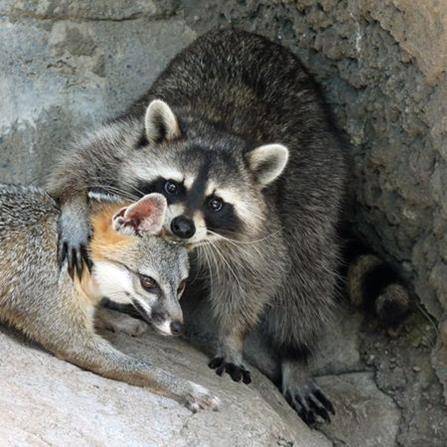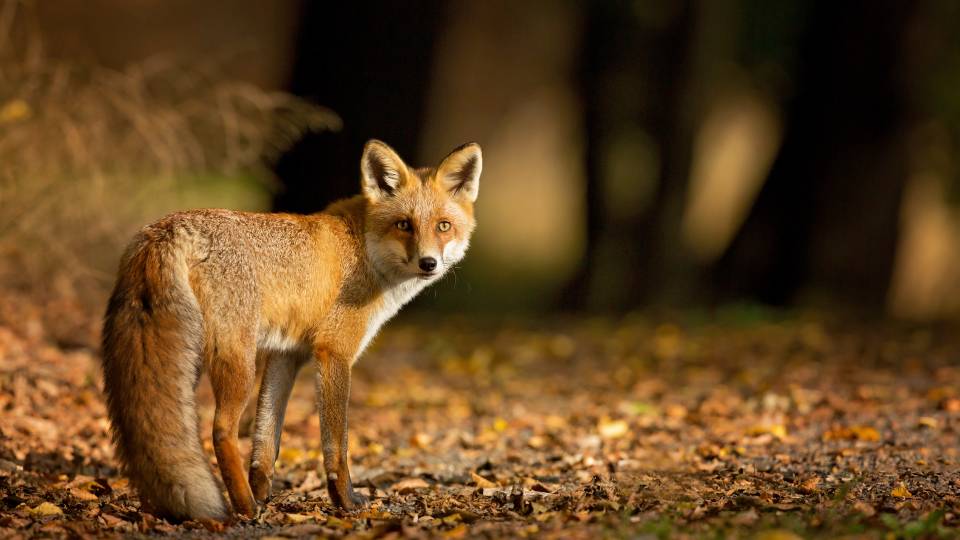ACTION ALERT: Speak out against Bath’s inhumane and ineffective rabies response plan

In response to an ongoing rabies outbreak, the city of Bath has partnered with the U.S. Department of Agriculture’s Wildlife Services division, under the supervision of Maine Department of Inland Fisheries and Wildlife to carry out a $26,000 plan to trap and kill random wildlife. Cage traps, to be checked twice a day, will be used so pets and wild animals that are not rabies vector species can be released. All rabies vector species – gray and red foxes, raccoons and skunks – healthy or sick– would be killed.
While MFOA agrees that action should be taken, as public safety and the health of wild animals are at stake, we also believe that it is important to employ humane strategies that will be effective, as well as scientifically and ecologically sound.
Please speak up today to ask the city of Bath to not act out of fear and to reconsider its current rabies control plan, which is not only inhumane, but likely to be ineffective.
HOW TO HELP
1) Attend the public meeting. It is critical that advocates, whether residents of Bath or not, attend this meeting. This issue impacts all of us and Maine’s wild animals.
Thursday, March 5, 2020 at 5 PM – 6 PM
Fisher-Mitchell School
597 High St, Bath, Maine 04530
RSVP on Facebook
https://www.facebook.com/events/200680367704346/
2) Contact Bath City Council members and town manager in opposition to the existing trap/kill plan (see talking points below).
Contacts
Peter Owen (City Manager), powen@cityofbath.com
Lindsey Goudreau (Communications Specialist), lgoudreau@cityofbath.com
Mari Eosco (Chair), meosco@cityofbath.com
Julie Ambrosino, jambrosino@cityofbath.com
Phyllis Bailey, pbailey@cityofbath.com
Sean Paulhus, spaulhus@cityofbath.com
Terry Nordmann, tnordmann@cityofbath.com
Raye Leonard, rleonard@cityofbath.com
Jennifer DeChant, jdechant@cityofbath.com
Susan Bauer, sbauer@cityofbath.com
Aaron Park, apark@cityofbath.com
WHY CURRENT PLAN IS UNLIKELY TO WORK
Unlikely to catch all the targeted animals.
Clinically rabid animals are usually too disoriented to respond to food lures and enter traps.
Fox, the wild animal that appears to be the most impacted by the Bath outbreak, rarely enter cage-style traps.
Will not eliminate the targeted animals, allowing the threat to residents to continue. Plus, it might make things worse as the remaining hosts redistribute to vacated areas - and thus cause more movements and interactions that spread the disease.
OTHER CONCERNS
The impact of culling (trapping/killing) on the wildlife population can be as damaging as rabies. Both may result in an imbalance of the ecosystem that can lead to other issues such as an increased tick population and associated diseases.
Threat to non-target animals. Although the plan is to release non-rabies vector species and companion animals, most animals experience high stress levels when caught in any trap and can injure or even kill themselves in a short period of time trying to escape.
Additionally, species such as Opossums and felines, have a very low threshold for cold, and even if traps are checked twice a day, are at risk of hypothermia when in a cage trap during the winter months.
ALTERNATIVE SOLUTIONS
Please encourage the city of Bath to employ a combination of the following alternative solutions.
It is critical not to waste $26,000 of taxpayer dollars by making ineffective decisions based in fear. It is important to remember that rabies is 100% treatable in humans when addressed in a timely manner. This funding would be better spent on:
Implementation of a 24/7 rapid response hotline for residents to report unusual acting wildlife.
Scheduling low or no cost rabies vaccine clinics to protect resident companion animals.
Creation of a fund to provide financial assistance with medical costs for residents that come into physical contact with a potentially infected animal.
Community education on how to discourage human/wildlife conflict.
Formation of a task force made up of representatives from Bath and neighboring towns to research implementation of a regional ground-distributed rabies vaccine program like the one employed in Cape Cod (similar landscape to Bath). Wildlife vaccination programs, although costly and a long-term effort, are the only proven method of permanently eradicating the disease.
SUPPORT MAINE’S LEADERS IN ANIMAL PROTECTION
Please consider making a donation today. Our work is dependent on your support. Please visit mfoa.net/articles/membership.
Your donation is needed to help us speak out against cruelty to all Maine animals! Please donate now and continue to make MFOA the voice of Maine animals.
190 U.S. Route 1
Falmouth, Maine USA 04105
207-781-2187


